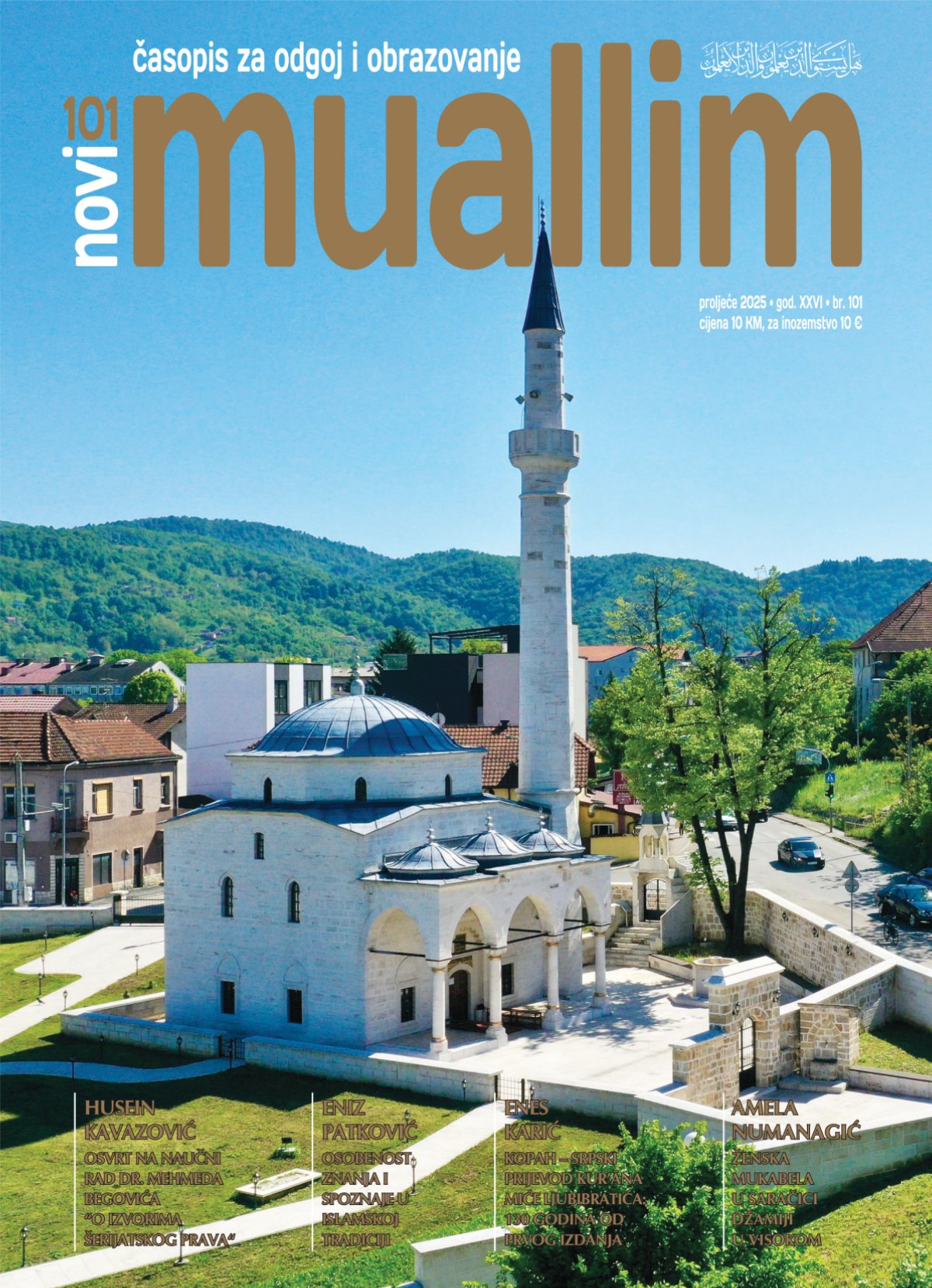Odnos Božije esencije i Njegovih atributa u kontekstu transcendencije i vječnosti u mišljenju imama Ebu Mensura el-Maturidije
DOI:
https://doi.org/10.26340/muallim.v26i101.2145Ključne riječi:
Imam El-Maturidi, Božiji atributi, esencija, transcendentalnost, antroporfizamSažetak
UDK 28-1
28:929 Maturadi A.M.
Ovaj rad ima za cilj istražiti glavne aspekte El-Maturidijeve teologije, uključujući konceptualizaciju Božije vječnosti, Njegov odnos prema vremenu i suodnos Njegove esencije i atributa. El-Maturidijeva teološka perspektiva o Božijoj esenciji bavi se suštinskim pitanjima islamske misli o Bogu. Njegova metodologija utemeljena na racionalnom promišljanju i interpretaciji Objave predstavlja ključni doprinos sunnitskoj kelamskoj tradiciji. El-Maturidijev pristup obuhvata: 1. pojam Božije esencije (zat): Bog je Biće - esencija koja uključuje atribute, ali ne kao supstrat koji ih nosi. Božija esencija je jedinstvena, vječna i neovisna; 2. Božiji atributi (sifatu-z-zat) su imanentni Božijoj esenciji i vječni su te nisu dodaci Njegovoj esenciji; 3. Kritika antropomorfizma i tumačenje atributa: El-Maturidi odbacuje tjelesnost Boga i koristi analogiju kako bi govorio o Njegovim atributima izbjegavajući direktna poređenja sa stvorenim svijetom. El-Maturidi nastoji da razjasni kako se Božija esencija može razumjeti u odnosu na stvoreni svijet, a istovremeno sačuvati Njegova apsolutna transcendentnost (tenzih). El-Maturidijina teologija ostaje relevantna u savremenim raspravama, pružajući metodološki okvir za razumijevanje Božije transcendencije i Njegovog odnosa prema stvorenom svijetu.
Downloads
Objavljeno
How to Cite
Broj časopisa
Rubrika
License

This work is licensed under a Creative Commons Attribution 4.0 International License.
Naknada:
a. Časopis ne naplaćuje naknadu za obradu članaka (APC) i naknadu za podnošenje članaka.
Autori koji objavljuju u ovom časopisu pristaju na sljedeće uvijete:
- Autori zadržavaju autorska prava i pružaju časopisu pravo prvog objavljivanja, pri čemu će rad jednu godinu po objavljivanju biti podložan licenci Creative Commons imenovanje koja omogućuje drugima da dijele rad uz uvijet navođenja autorstva i izvornog objavljivanja u ovom časopisu.
- Autori mogu izraditi zasebne, ugovorne aranžmane za ne-ekskluzivnu distribuciju rada objavljenog u časopisu (npr. postavljanje u institucionalni repozitorij ili objavljivanje u knjizi), uz navođenje da je rad izvorno objavljen u ovom časopisu.


